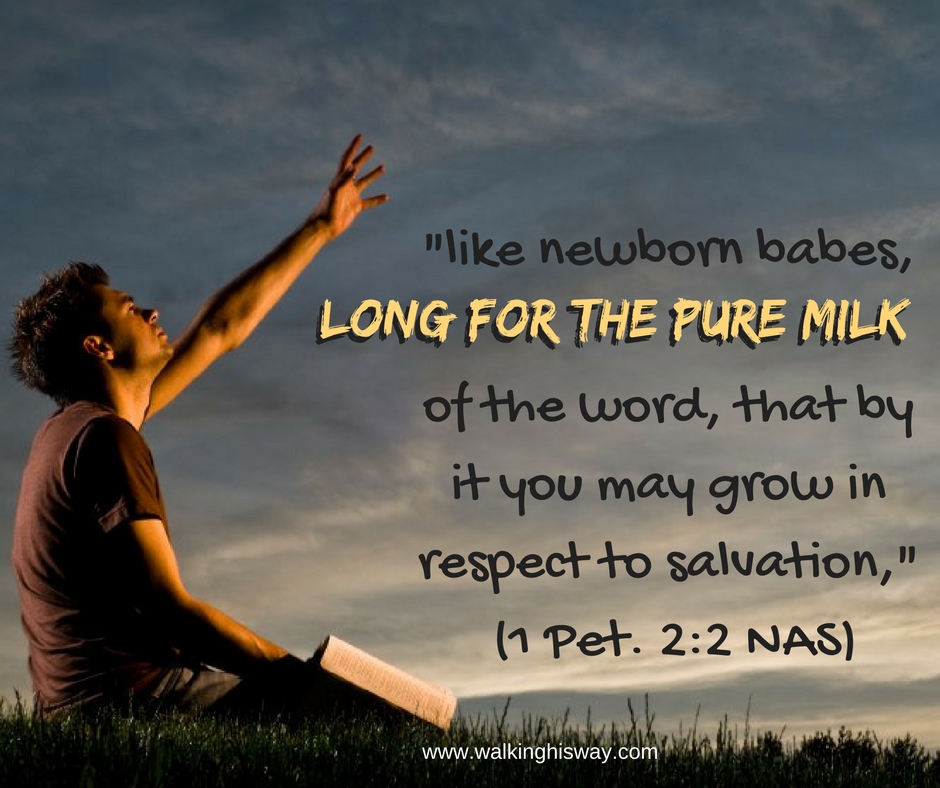 1 Peter 2:2 “And yearn *~ like newborn infants for pure, spiritual milk, so that by it you may grow up to salvation,”
1 Peter 2:2 “And yearn *~ like newborn infants for pure, spiritual milk, so that by it you may grow up to salvation,”
The simile of babies in 1 Peter 2:2 does not expect us to behave entiely like babies; rather, as babies have the strong and instinctive longing for their mothers’ milk, so we are to long to understand God’s word.
Why do we have to be commanded to desire the word and to make it our highest priority? The continual desire for sin quenches our thirst for God’s word.
The aorist command to “yearn,” or “desire,” means we must give urgency and immediacy to this action. Peter earlier warned, “As sojourners and pilgrims, abstain from fleshy lusts, which war against the soul” (1 Pet 2:11). Now he uses the same root word to focus on spiritual nourishment.
Desires are a part of life, and they can motivate us toward good or bad. As believers, we must choose healthy, godly desires and cultivate them to assuage the carnal, fleshly desires that lead to corruption and self–destruction.
But how can we distinguish between good desires and bad desires? The dividing line is whether the desire is self–centered and selfish or a desire for God’s will.
After we consciously decide to reject impure desires and motives (1 Pet 2:1), we must fill that vacuum with healthy, spiritual food that generates growth in spiritual maturity and godly living.
We are to crave “spiritual milk” (Gk. “unadulterated reason” or rational), which means we wish to understand God’s word and practice its teaching. The word is also figuratively described as meat, flesh, food, bread, and blood, illustrating the enjoyable incorporation of the practical elements of the word into our lives.
This spiritual or conceptual milk is the only means by which we can “grow up,” or “attain great power or authority,” in regard “to salvation”—-that is, “receiving the end of your faith—-the salvation of your souls” (1 Pet 1:9).
Thirst for understanding the word in order to follow it faithfully should continue throughout this life. How thirsty are you for His word today?
“Dear God, thank You for giving us all the information You want us to know in the Bible. Give me a growing hunger to know it and put it into practice every day.”
